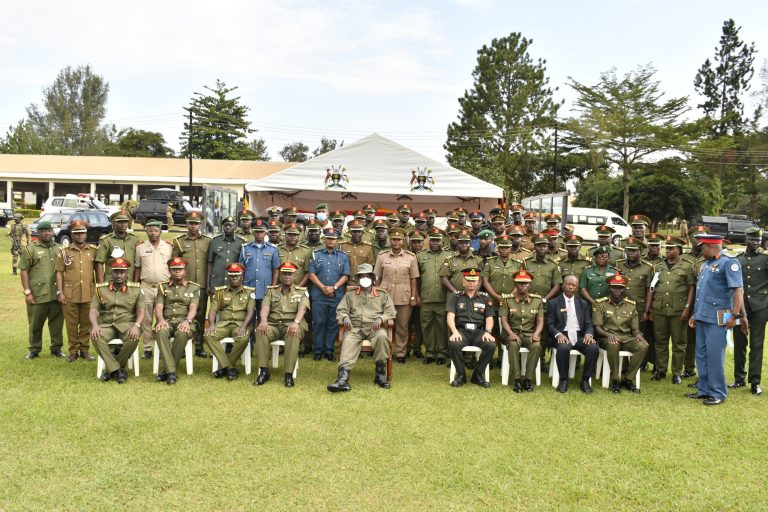President Yoweri Kaguta Museveni has identified the chronic underutilisation of Africa’s abundant natural and human resources as the continent’s primary obstacle to economic transformation, citing ignorance, poor leadership, overreliance on the West, and apathy as root causes.
Delivering a lecture of opportunity to 52 senior military officers undergoing Course 20/25 at the Uganda People’s Defence Forces’ Senior Command and Staff College (SCSC) in Kimaka, Jinja, President Museveni said Africa remains rich in resources but poor in outcomes due to lack of productive utilisation.
“Africa has a lot of resources, but people are reluctant to utilise them because of ignorance and the ‘I don’t care’ syndrome,” Museveni said. “In Africa, one can even survive without working. This has caused a lack of innovation and has left the continent backwards.”
The President, who also serves as Commander-in-Chief of the UPDF, criticised the dominance of informal labour and survivalist mindsets among the population, urging a shift toward commercial production and wealth creation through viable enterprises.
He outlined four critical sectors that must be developed for sustainable prosperity: commercial agriculture, industrialisation, services, and information and communications technology (ICT). These, he said, are key to job creation, especially for the youth across the continent.
Museveni also underscored Uganda’s dedication to regional integration, pointing to the East African Community (EAC) as a platform for building a Pan-African identity, opening larger markets, and expanding economic opportunities through trade.
“Governments must prioritise peace, infrastructure, education, health, electricity, and social services to empower citizens to be productive,” Museveni said, stressing the role of patriotic and strategic leadership in economic transformation.
He cautioned against politics driven by identity and tribalism, instead advocating for leadership rooted in shared national interests. Drawing lessons from Uganda’s own liberation struggle and the Tanzania-led overthrow of Idi Amin, the President stressed that clear strategy and ideological commitment—rather than material incentives—are key to long-term stability and success.
Referencing Somalia’s prolonged conflict, Museveni attributed the persistence of Al-Shabaab insurgents to a lack of strategic focus. “If the people of Somalia adopted the same approach we used… working without pay but with a clear cause and strategy; they could overcome Al-Shabaab,” he said.
Brigadier General Michael Kabango, Commandant of SCSC Kimaka, noted that the current intake includes officers from Uganda (41), Tanzania, Kenya, Rwanda, Burundi, South Sudan (two each), and Malawi (one).
The course is set to conclude with a formal graduation ceremony on June 27, 2025.





